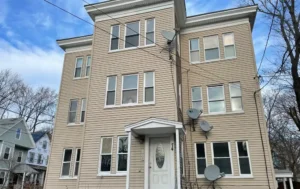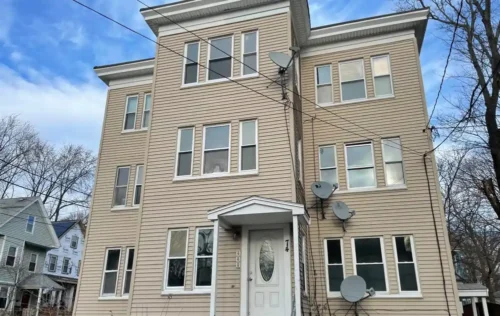
For example, rehab programs offer medical detox, individual therapy, and group counseling, while sober living does not. Addiction is a chronic and progressive disease that requires ongoing treatment and maintenance to recover. The first step in overcoming addiction is attending a drug and alcohol addiction treatment center. Also known as rehab, these programs offer services like medical detox, evidence-based behavioral therapies, and other services designed to help you recover. In summary, sober living homes effectively support individuals in recovery, helping them integrate their treatment experiences into daily life while navigating the transitional phase post-rehabilitation. Nonetheless, the benefits of sober living homes usually outweigh the drawbacks when they are well-managed and actively encourage residents’ engagement in recovery activities.

What is a sober living or recovery residence?
Lastly, the structured environment helps you focus solely on your recovery while surrounded by people who support you. After you meet specific goals and assessments, you are granted more freedom to leave the house and sober house vs rehab go to recovery meetings, work, errands, etc. The goal is to adopt a healthy daily routine that focuses on recovery goals, financial goals, and adopting a stable recovery support network. A rehabilitation center is an in-patient medical facility that supports individuals who struggle with alcoholism and substance use in their journey of recovery.
Sober House vs. Rehab or Treatment Center

Both choices are highly effective, and the best choice for you will depend on your treatment goals. For example, there are people who https://ecosoberhouse.com/ choose to skip rehab treatment programs altogether, instead choosing outpatient medical care over residential treatment. They may choose to go to a private doctor for Suboxone treatment, if they have an opioid addiction issue.
- This duration is essential as individuals transition from formal treatment to independent living.
- In summary, sober living homes effectively support individuals in recovery, helping them integrate their treatment experiences into daily life while navigating the transitional phase post-rehabilitation.
- The main issue is that, even if they are accepting of the treatment that involves continued drinking, there may be concern that TSM would interfere with the sobriety and recovery of people following an abstinence protocol.
- With an extensive knowledge of addiction and best practices, researchers play a crucial role in establishing options for what sober living vs. rehab contributes to the long-term success of recovery.
How do I Choose the Right Sober Living Home?
It often includes practical workshops and classes that help residents develop self-sufficiency and navigate the challenges of independent living. By fostering a sense of community, sober living homes empower individuals to support one another, building valuable relationships that can facilitate long-term recovery. These homes focus on creating emotional stability for residents through established routines, including regular therapy sessions and peer support engagements. By fostering a sense of community, sober living homes allow individuals to connect with others who share similar recovery goals, enhancing their chances of sustained sobriety.

You could consider reaching out to staff at a rehabilitation center you have previously attended for a referral. If you’re struggling with triggers and feeling overwhelmed, then a drug and alcohol-free environment can be helpful. Transitioning from rehab to a sober living facility is not mandatory, but it is highly recommended. It’s an excellent opportunity to hone relapse prevention skills and gradually adjust to the outside world. Most sober living facilities offer a three-month program, but some may offer longer or shorter stays, depending on a person’s recovery progress. Take the first step towards a brighter future—contact Ascension House now to discover how our supportive recovery care can empower you on your journey to success.
About Samba Recovery
At a sober living house, you’ll find rules and guidelines to follow to provide the structure you need to avoid reverting to destructive habits. As you can imagine, most sober living residences would not be prepared to facilitate TSM for their clients. The main issue is that, even if they are accepting of the treatment that involves continued drinking, there may be concern that TSM would interfere with the sobriety and recovery of people following an Substance abuse abstinence protocol. Brand names for injectable subcutaneous pay for nausea and include Sublocade and brixadi.

Transitioning is important because adjusting back to daily life can be difficult especially if someone recovery has to return to a toxic environment. Sober living communities offer people in recovery an opportunity to surround themselves with like-minded people striving to maintain a sober lifestyle. Such living environments, also provide people in recovery the necessary resources to rebuild their lives. In the same light, sober living homes assist people with finding a job and new residencies. Sober living homes provide a safe, alcohol-free, and drug-free environment for individuals in recovery. Unlike rehab, sober living offers more flexibility, allowing residents to live semi-independently while they build sober habits and transition back to everyday life.
Sober Living vs. Rehab: What is the Difference?
- After leaving drug rehab, clients often move into a sober living house in Coral Springs.
- Given the responsibility of covering these costs, many residents often seek part-time work or rely on financial assistance to maintain their living arrangements while focusing on recovery.
- Another benefit of sober living vs. rehab is the connection sober living homes have with the community and support groups.
Medication-assisted treatment (MAT) may be available, depending on the individual’s needs. Most facilities offer flexible programs that can be customized for each client’s unique situation. In most cases, people who want to stop using drugs need to spend time in rehab before moving on to a sober living facility. A sober living home or recovery residence is a home in which individuals who struggle with substance use and alcoholism reside together and support each other through their recovery journey with limited additional support.
Sobriety Housing in Bucks County, PA
- At Dove Recovery, we can help support you with extra assistance to ensure your successful path to recovery.
- It is not uncommon for people to mistake a sober house and a rehab or treatment center as the same thing.
- Sober living houses can foster peer encouragement, camaraderie, character development, and accountability in residents.
- Because of this, they offer less supervision than rehab programs, which allows you to learn how to make healthy choices on your own.
While sober living and rehab work together to maintain and manage early sobriety, rehab treatment programs focus specifically on terminating addiction through detox and therapeutic measures. After an initial assessment from a healthcare professional, a treatment plan addresses personal objectives and provides a timeline for the initial weeks of sobriety. According to the article, The 5 Stages of Treatment, inpatient rehab is the most intensive form of rehabilitation. Therapists work with fragile clients to form a sense of safety and help the individual understand how addiction has dominated and damaged their lives. Individuals in rehab participate in learning healthy lifestyle habits, as well as individual, group, and family therapy. This duration is essential as individuals transition from formal treatment to independent living.


